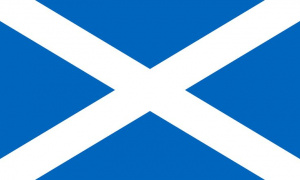Difference between revisions of "Language/Scottish-gaelic/Vocabulary/Basic-Verbs"
m (Quick edit) |
m (Quick edit) |
||
| Line 1: | Line 1: | ||
<span pgnav> | |||
{| class="wikitable pg_template_nav" | |||
|[[Language/Scottish-gaelic/Vocabulary/Common-Household-Items|◀️ Common Household Items — Previous Lesson]] | |||
|[[Language/Scottish-gaelic/Grammar/Personal-Pronouns|Next Lesson — Personal Pronouns ▶️]] | |||
|} | |||
</span> | |||
{{Scottish-gaelic-Page-Top}} | {{Scottish-gaelic-Page-Top}} | ||
| Line 125: | Line 132: | ||
{{Scottish-gaelic-Page-Bottom}} | {{Scottish-gaelic-Page-Bottom}} | ||
<span pgnav> | |||
{| class="wikitable pg_template_nav" | |||
|[[Language/Scottish-gaelic/Vocabulary/Common-Household-Items|◀️ Common Household Items — Previous Lesson]] | |||
|[[Language/Scottish-gaelic/Grammar/Personal-Pronouns|Next Lesson — Personal Pronouns ▶️]] | |||
|} | |||
</span> | |||
Revision as of 22:43, 2 April 2023
| ◀️ Common Household Items — Previous Lesson | Next Lesson — Personal Pronouns ▶️ |
Basic Verbs
Verbs are essential to every sentence. They express actions, being, or states of being. Using verbs correctly in a sentence is an important part of any language learning process. In this lesson, we will learn the most common verbs in Scottish Gaelic.
To Be
To Be is one of the most important verbs in any language. It is used to describe a state of being or an identity. In Scottish Gaelic, the verb to be is expressed through two different verbs depending on the tense:
| Scottish Gaelic | Pronunciation | English |
|---|---|---|
| Tha | /ha/ | To be (present tense) |
| Bha | /və/ | To be (past tense) |
Note that in Scottish Gaelic, to be is often omitted when it's obvious from the context.
- Tha mi - I am
- Tha thu - You are (singular)
- Tha e - He is
- Tha i - She is
- Tha sinn - We are
- Tha sibh - You are (plural)
- Tha iad - They are
Example:
- Tha mi glè phòsda. - I am very married.
- Am bheil thu fileanta sa' Ghàidhlig? - Are you fluent in Gaelic?
- Tha sinn a' fuireach anns an taigh ùr. - We are living in the new house.
To Have
To Have expresses possession in Scottish Gaelic. The verb is expressed as tha in the present tense and bha in the past tense in the same way as the verb to be.
- Tha cuideigin a' tighinn - Someone has arrived
- Bha mi air mo thuras - I had been on my journey
To Do
To Do is expressed by the verb dèan in Scottish Gaelic. It is used as a substitute or auxiliary verb for other verbs like in English 'to do' and it has various meanings. It's also used to make questions and negative statements.
- Dèan ol - Drink up
- Dèan fiosrachadh - enquire
- Dèan do chorp na beatha - take care of yourself
- Dèan an rud ceart - Do the right thing
Example:
- Dèan fiosrachadh aig an oifis phuist. - Enquire at the post office.
- Dèan teagasg sa' Ghàidhlig. - Teach in Gaelic.
- An dèan thu an nighe? - Will you wash the dishes?
To Go
To Go is expressed by the verb rach in Scottish Gaelic. It is a stem-changing verb, meaning that its vowel changes from an a to an e in the second and third person singular.
- Rach a-mach leam - Come out with me
- Chaidh lou misneach gam dhìon - His courage failed him
Example:
- Rachaidh mi an déidh do dhaoine ceart a dhìon. - I will go after protecting the right people.
- Cad e/Am faigh mi bus a-rithist a-màireach? - Will I get the bus again tomorrow?
Other Lessons
- Geometry
- Travel Related Phrases
- Family
- Post Office
- Months of the Year
- Dates
- Colors
- Clothes
- Transport
| ◀️ Common Household Items — Previous Lesson | Next Lesson — Personal Pronouns ▶️ |
